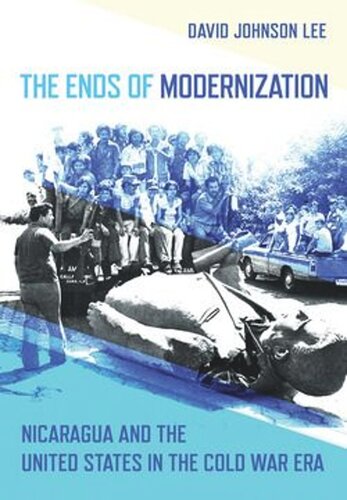

Most ebook files are in PDF format, so you can easily read them using various software such as Foxit Reader or directly on the Google Chrome browser.
Some ebook files are released by publishers in other formats such as .awz, .mobi, .epub, .fb2, etc. You may need to install specific software to read these formats on mobile/PC, such as Calibre.
Please read the tutorial at this link: https://ebookbell.com/faq
We offer FREE conversion to the popular formats you request; however, this may take some time. Therefore, right after payment, please email us, and we will try to provide the service as quickly as possible.
For some exceptional file formats or broken links (if any), please refrain from opening any disputes. Instead, email us first, and we will try to assist within a maximum of 6 hours.
EbookBell Team

4.0
26 reviewsThe Ends of Modernizationstudies the relations between Nicaragua and the United States in the crucial years during and after the Cold War. David Johnson Lee charts the transformation of the ideals of modernization, national autonomy, and planned development as they gave way to human rights protection, neoliberalism, and sustainability. Using archival material, newspapers, literature, and interviews with historical actors in countries across Latin America, the United States, and Europe, Lee demonstrates how conflict between the United States and Nicaragua shaped larger international development policy and transformed the Cold War.
In Nicaragua, the backlash to modernization took the form of the Sandinista Revolution which ousted President Anastasio Somoza Debayle in July 1979. In the wake of the earlier reconstruction of Managua after the devastating 1972 earthquake and instigated by the revolutionary shift of power in the city, the Sandinista Revolution incited radical changes that challenged the frankly ideological and economic motivations of modernization. In response to threats to its ideological dominance regionally and globally, the United States began to promote new paradigms of development built around human rights, entrepreneurial internationalism, indigenous rights, and sustainable development.
Lee traces the ways Nicaraguans made their country central to the contest over development ideals beginning in the 1960s, transforming how political and economic development were imagined worldwide. By illustrating how ideas about ecology and sustainable development became linked to geopolitical conflict during and after the Cold War, The Ends of Modernization provides a history of the late Cold War that connects the contest between the two then-prevailing superpowers to trends that shape our present, globalized, multipolar world.